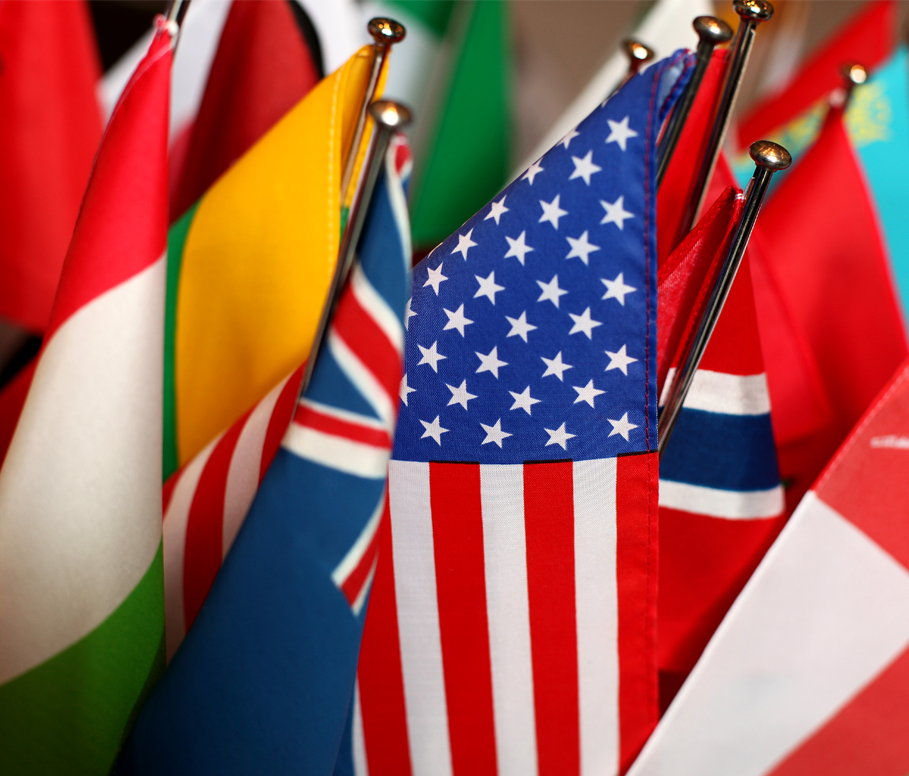COVID-19 was officially declared a pandemic nearly a year ago, and in that time, the world has come to understand the vital role of innovation and collaboration in addressing this major global health crisis. Meeting virtually the week of January 18, the 34 countries represented on the World Health Organization (WHO) Executive Board have an opportunity to fuel further progress by supporting a strong innovation ecosystem, grounded in protection of intellectual property rights.
While the pandemic will loom large over these meetings, the Executive Board will also discussion the WHO’s Global Strategy and Plan of Action on Public Health, Innovation and Intellectual Property (GSPOA), a framework that countries negotiated 13 years ago. The GSPOA’s goal was to helps countries set policies to support discovery of new treatments and cures for diseases disproportionately affecting developing nations.
Critically, the GSPOA views IP as “an important incentive in the development of health care products.” However, as nations look to get COVID-19 therapies and vaccines to people worldwide, some leaders have supported misguided policies such as compulsory licensing. If implemented, these policies would weaken IP protections and thus harm much-needed innovation for developing and developed nations alike. Some extreme measures to undermine IP could permanently undermine the world’s ability to prepare for future pandemics and fight other diseases.
The COVID-19 pandemic has taken a toll, but it has also spurred unprecedented collaboration and innovation to address it – thanks to strong IP systems that protect and incentivize innovators. Biopharmaceutical companies have been able to deliver safe and effective vaccines for COVID-19 thanks to their extraordinary R&D capacity developed over many years thanks to IP rights and a strong innovation ecosystem.
The 34 countries represented on the WHO Executive Board in 2021 have an extraordinary opportunity to advance efforts that fuel progress and support a strong IP and innovation ecosystem.
Governments, international organizations, and manufacturers are now racing to overcome the extraordinary challenge of scaling up production and distribution of COVID-19 vaccines. IP is not an obstacle to this challenge. John-Arne Røttingen, chair of the WHO Covid-19 Solidarity trial, has explained that “voluntary mechanisms are a better way to achieve this.” He noted that waiving IP rights is the “wrong approach,” because COVID-19 therapeutics and vaccines are complex biological products in which the main barriers are production facilities, infrastructure, and know-how. “IP is the least of the barriers,” Røttingen says.
As Executive Board members have gathered at global forums in the past year, many have acknowledged the vital role of IP, innovation, and collaboration, to address our current challenges. For example:
- At the WIPO Assemblies of the Member States meeting in September, Germany noted “COVID-19 and the measures to combat this pandemic have had, and continue to have, serious consequences for the global economy. Historically, intellectual property rights have proven to be a driver of innovation, competitiveness and economic development.”
- The United Arab Emirates, among other countries, echoed this at the same meeting stating, “the COVID-19 pandemic has demonstrated more clearly than ever before the importance of a knowledge-based economy…we want to work on technology, creativity and development…that is our way forward. [The treaties we have signed] seek to support creators and innovators and to ensure everyone has access to all of their works.”
- At last year’s World Health Assembly Kenya underscored the need for collaboration, noting “the lessons learnt from this crisis has reaffirmed the need for Regional, global and multilateral solidarity and collaboration…We are particularly encouraged by the demonstrations of unity and humanity shown both within and across countries and application of information and technology” – which we know is possible because of the IP systems in place.
- Singapore also emphasized the key role of broad collaboration at the meeting, noting “we can learn from each other and cooperate with one another as we fight this pandemic. This is a challenge that no single country can succeed on its own. The COVID-19 Response resolution sends a strong signal to the world that global solidarity is needed to win this war against the virus.”
In 2021, WHO Executive Board members should continue to speak up to defend IP and innovation, even as they also advocate for continued partnerships and collaboration with the private sector. In doing so, we can end the coronavirus pandemic and improve global health.


